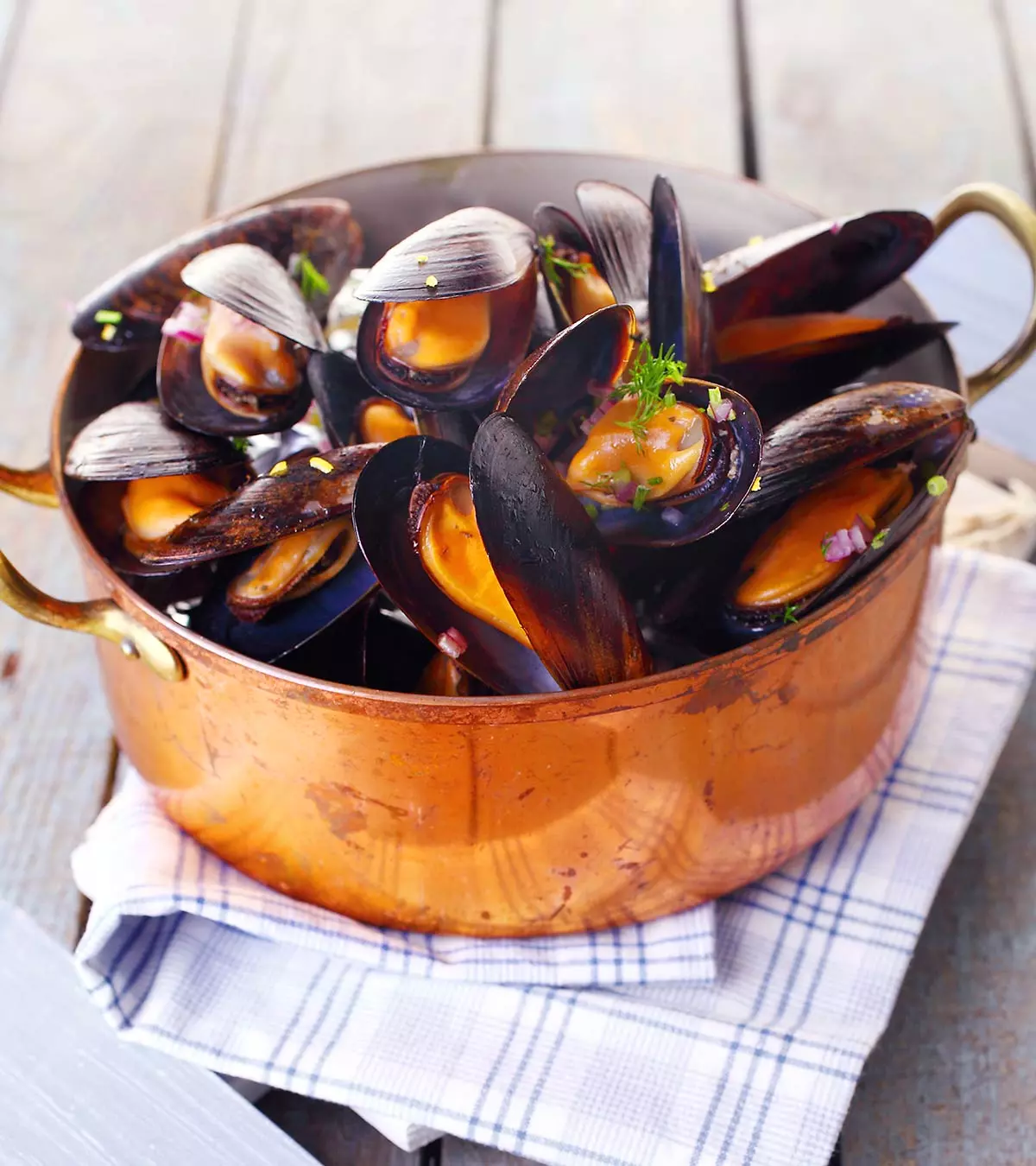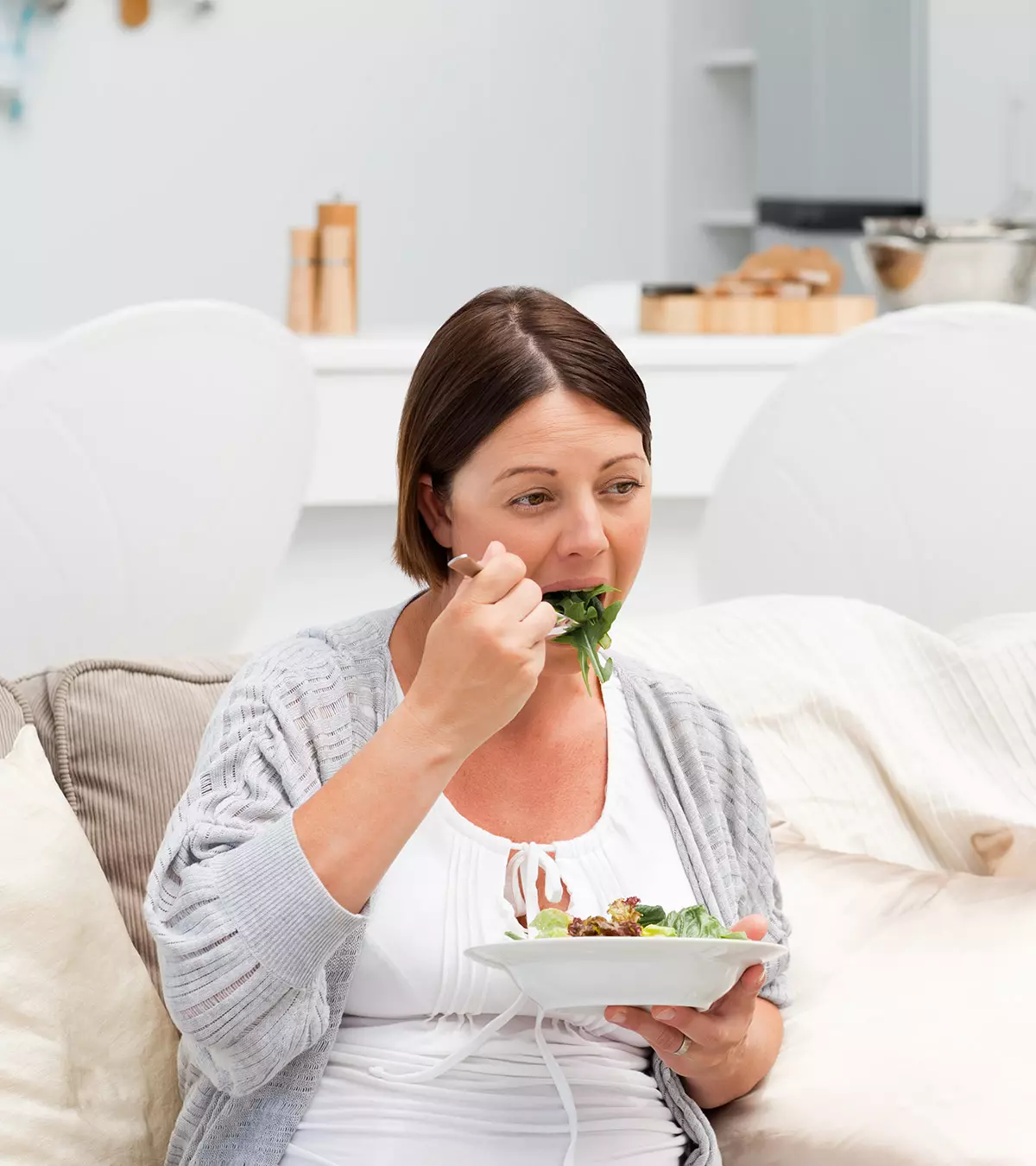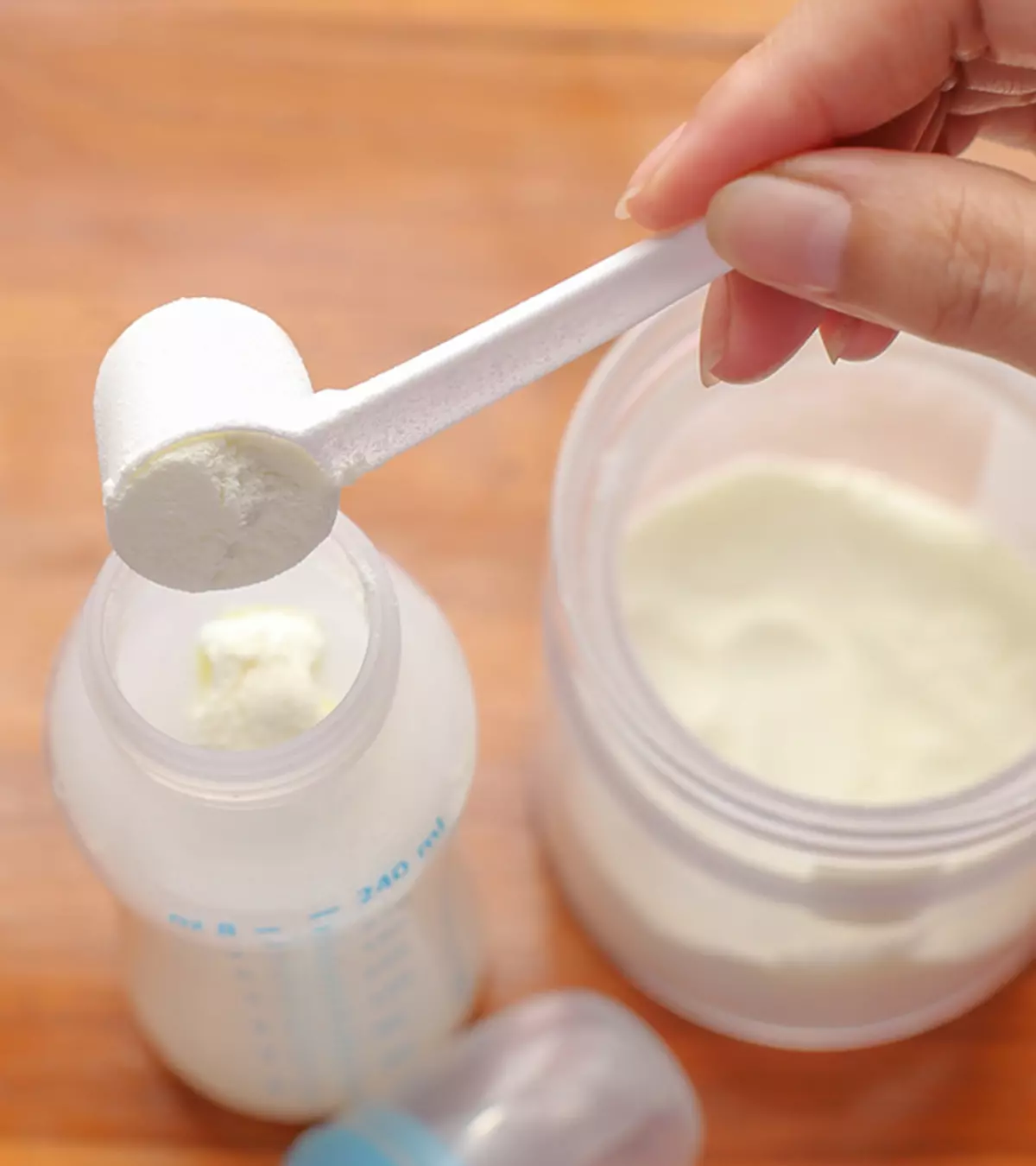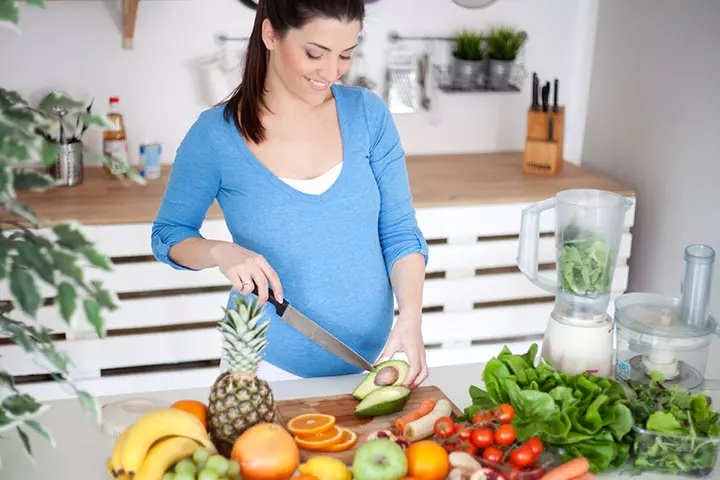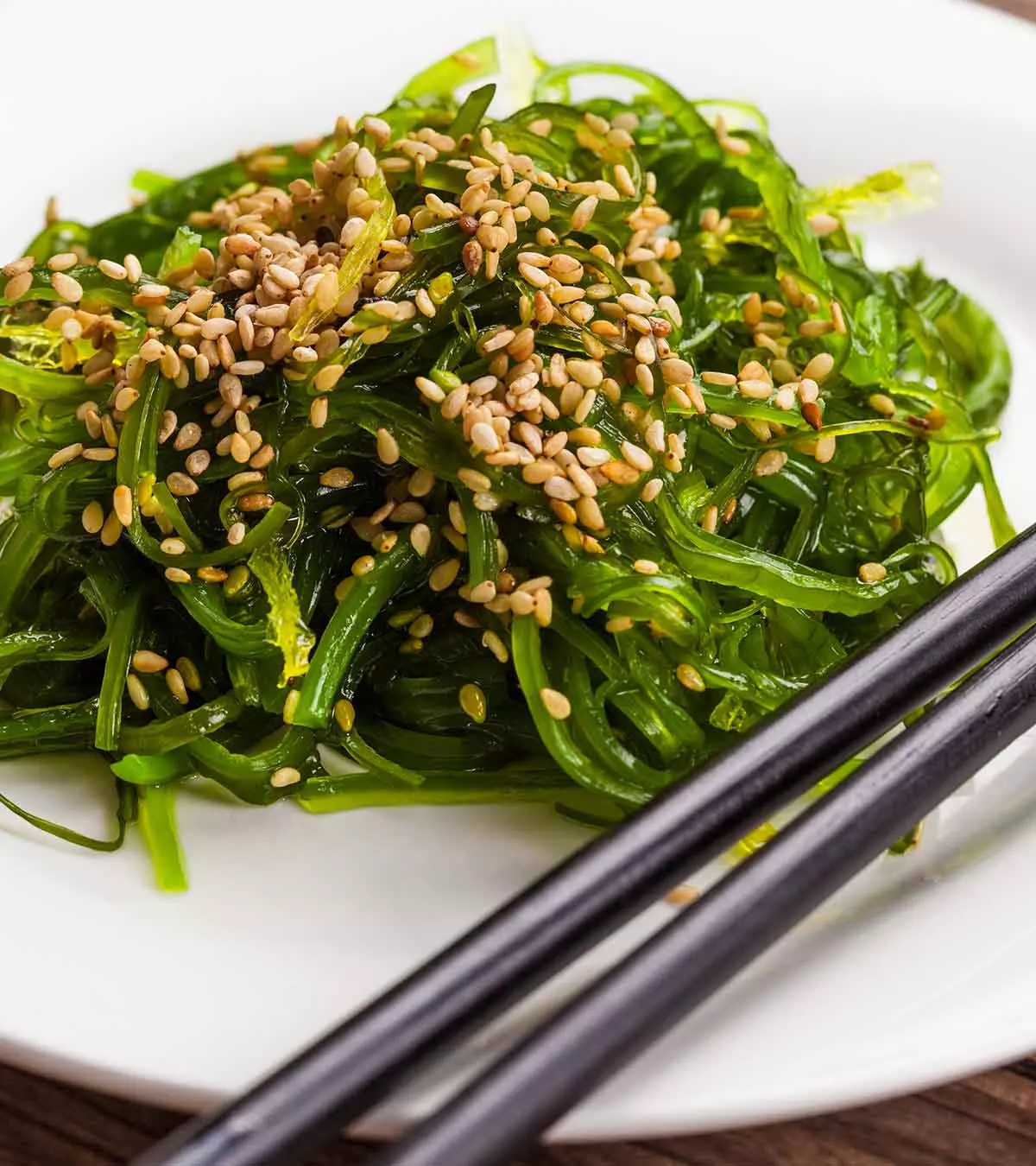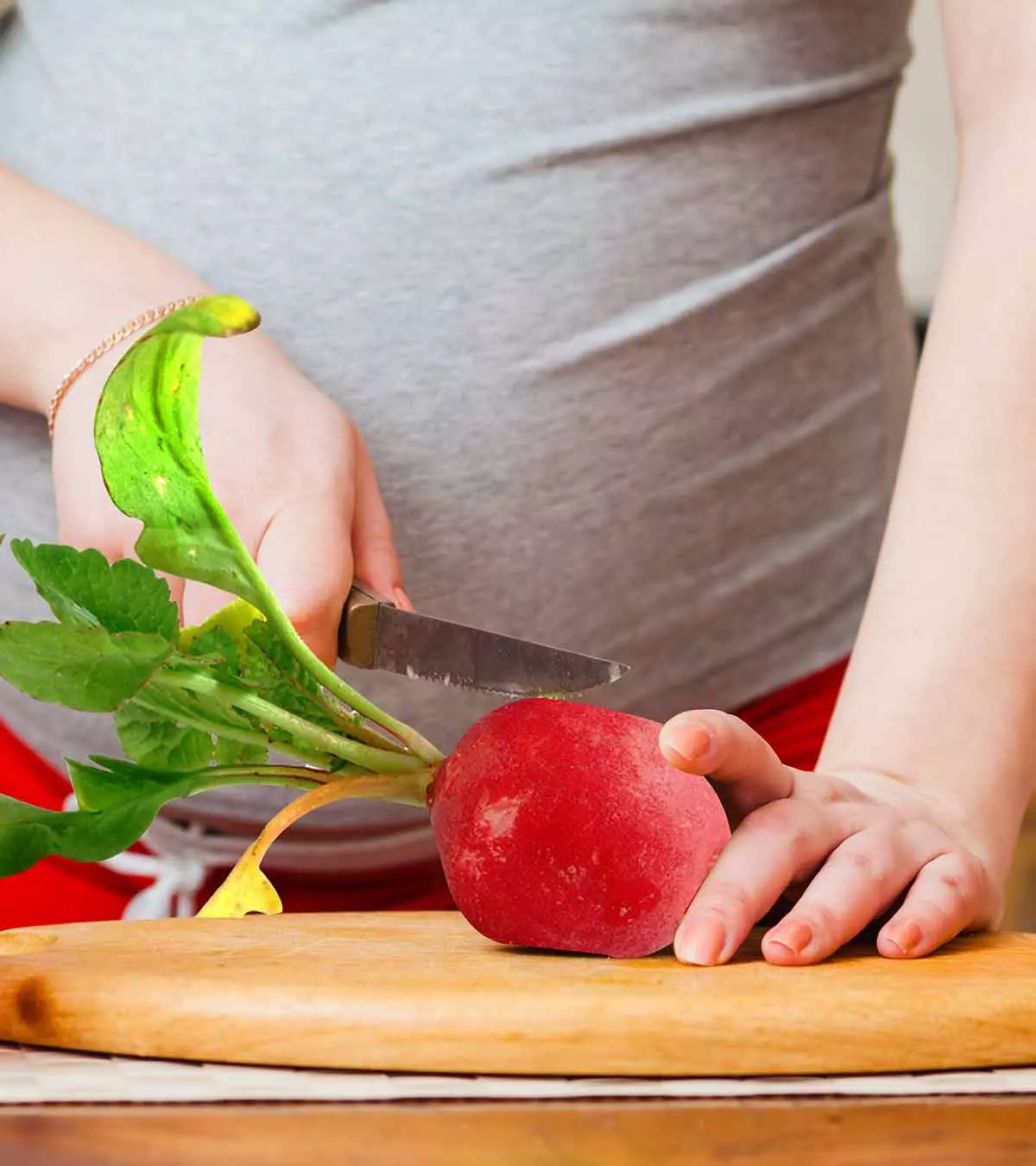
Image: Midjourney/ MomJunction Design Team
Clove is a versatile spice used to flavor food and beverages. It is rich in vitamins and minerals and has many medicinal properties. But is it safe to consume cloves during pregnancy? Pregnant women are cautious about each and everything they put in their mouths. However, due to much misinformation floating around, it may not be clear if the ingredient on the table is safe for you or not. To get accurate information and facts, read this post as we tell you about the nutrition, safety, and health benefits of consuming cloves during pregnancy.
Key Pointers
- Commonly used in cooking and as medicine, cloves have many benefits but must be taken in moderation during pregnancy.
- Cloves are consumed in various forms such as oil, in teas, or powder and are known to be rich in antioxidants and dietary fiber.
- They also help boost the immune system and aid in fetal development due to being rich in carbohydrates, proteins, omega-3 fatty acids, and vitamins C and K.
- However, overconsumption of clove may lead to adverse health effects in pregnant women.
- Therefore, expectant mothers should consult their doctor before consuming clove in any form during pregnancy.
What Is Clove?
Clove is a herb that is used in various forms for eating and medicinal purposes. Clove is mainly used for its oil, leaves, dried flower buds, and stems.
Are Cloves Safe During Pregnancy?

Cloves are widely used in food recipes. They are safe during pregnancy if you use them as a part of your food. However, there is limited research on the safety of cloves as a medicinal supplement during pregnancy (1).
Melbourne-based obstetrician/gynecologist Dr. Alex Polyakov says, “During pregnancy, the safest form of clove for consumption is generally as a culinary spice used in cooking. This means that cloves are used in small quantities to flavor foods and are part of a complex matrix of ingredients, limiting exposure to any compound. Whole or ground cloves used this way are unlikely to pose a risk when consumed as part of a balanced diet.”
The best thing to do is include small amounts of clove in your food and stay away from using it in the form of medication.
 Point to consider
Point to considerHealth Benefits Of Clove While You Are Pregnant
Using clove as a food ingredient during pregnancy is safe. So, stick to using it in the spice form. You should also avoid using clove as a part of any other medicinal supplement unless directed by your doctor. Additionally, refrain from using clove oil when you are pregnant. The reason for it is that its safety and efficacy, especially for unborn babies, aren’t well established. Here are some health benefits of eating cloves during pregnancy:
- Cloves are a rich source of antioxidants. Scientists examined the antioxidant effects of clove and found that clove bud oil extract, when used at a concentration of 45 μg/mL, displayed high antioxidant activity, inhibiting free radicals by more than 60% (2). Certain antioxidants in cloves help activate your body’s antioxidants. As a result, your body fights off any oxidative cell damage and the antioxidants and anti-fungal properties aid in infection prevention.
- The rich amount of antioxidants is a great way to increase your immunity and is especially useful while you are pregnant.
 Quick fact
Quick fact
- Cloves contain a high amount of minerals such as manganese, sodium and phosphorus. All these minerals will help promote your unborn baby’s development.
- The dietary fiber in cloves will also help keep your digestion smooth and regulate your bowel movements. When you are pregnant, constipation is a common problem. Including clove in your main dishes will help alleviate any constipation or digestive problems.
- The vitamin C and K in cloves will add to your overall respiratory health and also prevent you from contracting cold and flu, another health condition that is common when you are pregnant.
- Cloves contain a high amount of omega-3 fatty acids. The fatty acids help promote your unborn baby’s brain development. It keeps your baby’s nervous system healthy and lets it develop normally.
- The protein and carbohydrate found in cloves will provide you with a dash of energy while you are pregnant.
- The calcium and phosphorus content in clove promotes your unborn baby’s bone formation.
- Cloves are also a good source of flavonoids that act as anti-inflammatory agents. Eating clove during pregnancy will prevent joint ache or swelling.
 Did you know?
Did you know?
Side Effects of Consuming Cloves When Pregnant
Consuming moderate amounts of cloves during pregnancy is generally considered safe. However, consuming cloves in large amounts might lower sugar levels. It may also slow down blood clotting, which can potentially lead to bruising and bleeding (3). Cloves belong to the Myrtaceae family, and individuals allergic to other foods from this family, such as allspice or guava, may experience cross-reactivity with cloves. Therefore, speak to your healthcare provider if you are adding cloves to your diet during pregnancy for the first time.
Frequently Asked Questions
1. Can I use cloves for toothache during pregnancy?
Cloves can help with toothaches because they have natural pain-relieving properties (7). However, if you’re pregnant, talk to your doctor or pharmacist before using clove oil or products containing cloves. Clove oil shouldn’t be used during pregnancy unless your doctor recommends it, as it might be harmful to you and your baby.
2. Is clove tea safe during pregnancy?
Yes, you may drink clove tea in moderation during pregnancy. However, to avoid any adverse effects, it is important to consult a doctor before making a decision.
3. Can I drink clove water during pregnancy?
Yes, you may drink clove water in moderate amounts to boost gastrointestinal health and manage certain digestive issues. However, make sure to consult your gynecologist to ensure the correct amount of cloves to be consumed and the proper method of preparing clove water.
You may use cloves during pregnancy in moderation to spice the food items. However, you must avoid excessive use and seek expert advice while using cloves for natural remedies in pregnancy. Cloves are rich sources of antioxidants and minerals such as manganese. It is also a good source of dietary fibers, vitamins, and flavonoids with anti-inflammatory properties. You may chew cloves for toothache in pregnancy. It is recommended to avoid clove as an essential oil and other clove-derived medications in pregnancy due to higher concentrations and possible adverse effects.
Infographic: Health Benefits Of Clove During Pregnancy
Cloves are a popular spice used for cooking Indian dishes and as an ingredient in traditional medicine. The infographic below explains how it might benefit a pregnant woman’s health. However, it is better to stick to moderate consumption of this spice while pregnant to reap its benefits while preventing any side effects. Illustration: Momjunction Design Team
Illustration: Is It Safe To Use Clove During Pregnancy?

Image: Dalle E/MomJunction Design Team
References
- Fatmah Almoayad et al; (2021); Exploring the use of herbal treatments during pregnancy among Saudi women.
https://www.ncbi.nlm.nih.gov/pmc/articles/PMC8631229/ - İlhami Gülçin et al; (2012); Antioxidant activity of clove oil – a powerful antioxidant source.
https://www.sciencedirect.com/science/article/pii/S1878535210001899#! - Clove.
https://medlineplus.gov/druginfo/natural/251.html - Clove Oil.
https://www.medicines.org.uk/emc/files/pil.4817.pdf - Diego Francisco Cortés-Rojas et al.; (2014); Clove (Syzygium aromaticum): a precious spice.
https://www.ncbi.nlm.nih.gov/pmc/articles/PMC3819475/ - Clove Oil.
https://www.sciencedirect.com/topics/medicine-and-dentistry/clove-oil - Mina Kamkar Asl, Ashraf Nazariborun, and Mahmoud Hosseini; (2013); Analgesic effect of the aqueous and ethanolic extracts of clove.
https://www.ncbi.nlm.nih.gov/pmc/articles/PMC4075701/
Community Experiences
Join the conversation and become a part of our nurturing community! Share your stories, experiences, and insights to connect with fellow parents.
Read full bio of Michelle Hawksworth
- Dr. Alex Polyakov is an advanced laparoscopic surgeon specializing in gynecological and fertility-related procedures. After graduating from the University of Adelaide in 2000, Dr. Polyakov completed his internship at the Royal Adelaide Hospital before moving to Melbourne to start his specialist training in Obstetrics and Gynecology.
 Dr. Alex Polyakov is an advanced laparoscopic surgeon specializing in gynecological and fertility-related procedures. After graduating from the University of Adelaide in 2000, Dr. Polyakov completed his internship at the Royal Adelaide Hospital before moving to Melbourne to start his specialist training in Obstetrics and Gynecology.
Dr. Alex Polyakov is an advanced laparoscopic surgeon specializing in gynecological and fertility-related procedures. After graduating from the University of Adelaide in 2000, Dr. Polyakov completed his internship at the Royal Adelaide Hospital before moving to Melbourne to start his specialist training in Obstetrics and Gynecology.
Read full bio of Ria Saha
Read full bio of Swati Patwal
Read full bio of Lorraine Teron









